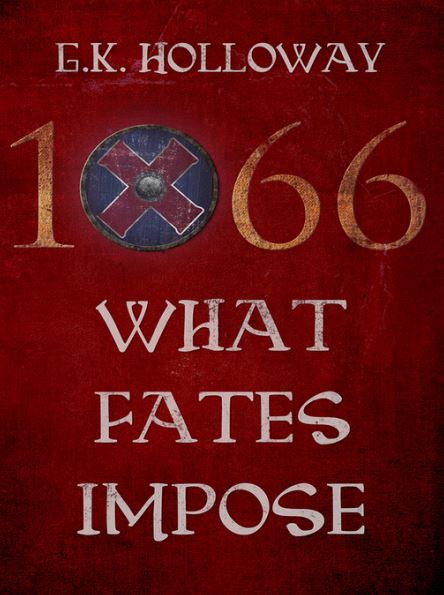It’s no secret that I felt The Other Boleyn Girl was overrated. But I requested a free review copy of The White Princess, a novel based on the life of Elizabeth of York, wife of Henry Tudor (Henry VII) and mother of Henry VIII, because I thought I should give Philippa Gregory another chance. After all, other readers in my family enjoy her novels and I value their opinions.
It’s written in present tense which I’m not a huge fan of because I find more often than not, it comes off sounding pretentious but admittedly, this is well written and it’s the one thing I can’t criticize her for. It’s also written in first person and here again, I can’t criticize Gregory’s ability to write well in first person, but I felt like the nature of it is too restrictive, especially for this complex subject matter. However, what really let this book down was the characterization, mainly of Elizabeth.
For starters, I could not understand how she could be in love with the man who kidnapped and imprisoned her brothers and then declared them, along with herself, illegitimate so he could steal their crown. Elizabeth seems to think he had no other choice but I’m not buying this “woe is Richard” attitude. She also seems to think that if Richard had won at Bosworth, he would have married her but the fact is, he could not marry a bastard and he could not re-legitimize her without admitting that he was wrong to declare her brother illegitimate and thus, admitting that he was a usurper and not the lawful king. I could maybe excuse Elizabeth’s expectations with Richard as youthful ignorance but even her mother seems to agree Richard would have married her had he survived. So this struck me as Gregory not fully understanding the situation or perhaps just choosing to disregard the reality of the situation to suit her fanciful story. I don’t mind using a creative license in novels but it has to be believable and it’s this kind of disregard for realism that makes it difficult to enjoy. For example, I’m okay with Gregory claiming that when Elizabeth’s family took refuge in Westminster Abbey, it was in the dark, damp “crypt under the chapel” even though in reality, they stayed in the luxurious house where the Abbot lived, in his best rooms as his guest. I’m okay with that because while it’s untrue, it’s not completely unbelievable that had the Abbot not been so accommodating, they might have hunkered down in a section of the Abbey where they could secure their safety. So I’m okay with using this idea as dramatic license, but I’m not okay with things that don’t even make sense within the contexts of Gregory’s own fiction. She makes a point of showing how Henry had to legitimize Elizabeth before marrying her because a king can’t marry a bastard so why would this not apply to Richard as well?
What bothered me about The White Queen miniseries (and I suspect of the book as well, which precedes The White Princess) was the portrayal that the women involved were the true engineers of these pivotal moments in history and the men were practically just their pawns. I enjoy stories about strong, influential women in history and how they cope with the turbulent events they often get caught up in, but I feel like Gregory’s portrayal of this is very unrealistic. However, Elizabeth of York was in a very different situation than her mother had been and so The White Princess took the opposite approach and portrayed Elizabeth as a victim and pawn of Henry Tudor and Margaret Beaufort. But Elizabeth does nothing to win favors or gain influence and spends most of the book clueless and passive. Apparently, there's no middle ground with Gregory - women either engineer everything or have no influence at all. Even Henry himself, after Elizabeth responded with “I don’t know” to all his questions, appropriately tells her:
“When I think of the fortune that was spent on your education, Elizabeth, I am really amazed at how little you know.”
I realize that he suspected she knew more than she was admitting but that’s the frustration thing, with one exception, she really didn’t know anything. And while I understand why she doesn’t know anything, the fact that it’s written in first person means the reader doesn’t know anything more than Elizabeth does, which makes for a frustrating read. Here is where third person would have been beneficial and there were many people around Elizabeth whose stories we got tantalizing glimpses of and would had really added more dimension to the story had we been able to see them.
I can also understand why Elizabeth wasn’t scheming and plotting in league with her mother, but I can’t understand why Elizabeth does nothing to improve her own situation. If I were Elizabeth, no matter how much I hated Henry, I’d be doing everything I could to convince him that he can trust me so that perhaps I could have more influence over him. But Elizabeth never even considers this.
Eventually, she does come to care for Henry but I struggled to understand why. He spends most of the book demanding to know what she knows (which is nothing, of course), sulking or throwing a tantrum when yet another “York boy” pops up, and cowering behind an army he has no faith in. He is driven half mad by fear, which is understandable, but it’s hardly going to make a woman fall in love with him. On Henry’s end, he claims to have hoped for Elizabeth’s love from the first moment he met her but again, I’m not really sure why since she is dull and clueless and spends most of the book turning away from him. Henry goes on and on about how she has some kind of inherent likability that all Yorks do and which eludes him, but apart from being pretty and smiling and waving at crowds, I couldn’t see what was so likable about her. It’s not enough to say a character is this or that, if you don’t show me, it falls flat.
I really thought we were going to see a woman who was quietly influential in the shadows of not only her husband but her growing son Henry as well but instead we get a girl who has basically given up on life and is just passively enduring it.
Then there’s Henry. I felt like Gregory’s attempts to paint him as multidimensional missed the mark. On one hand he is cold, calculating, and untrusting but on the other hand he almost immediately begins readily opening up to Elizabeth about his insecurities and fears, despite the fact that she has done nothing to coax this out of him and despite the fact that he never trusts her. Making a character multidimensional doesn’t mean having them do things that don’t make sense.
I get that this is supposed to be a story about a woman who was forced to ride the line between two warring factions and how she was powerless to stop the people she loved on both sides from destroying one another. I get that it’s supposed to be about a man who is barely able to cling to a throne that was never his and how it will haunt him for all his days. In theory, it sounds like a great story but it just wasn’t executed very well.































